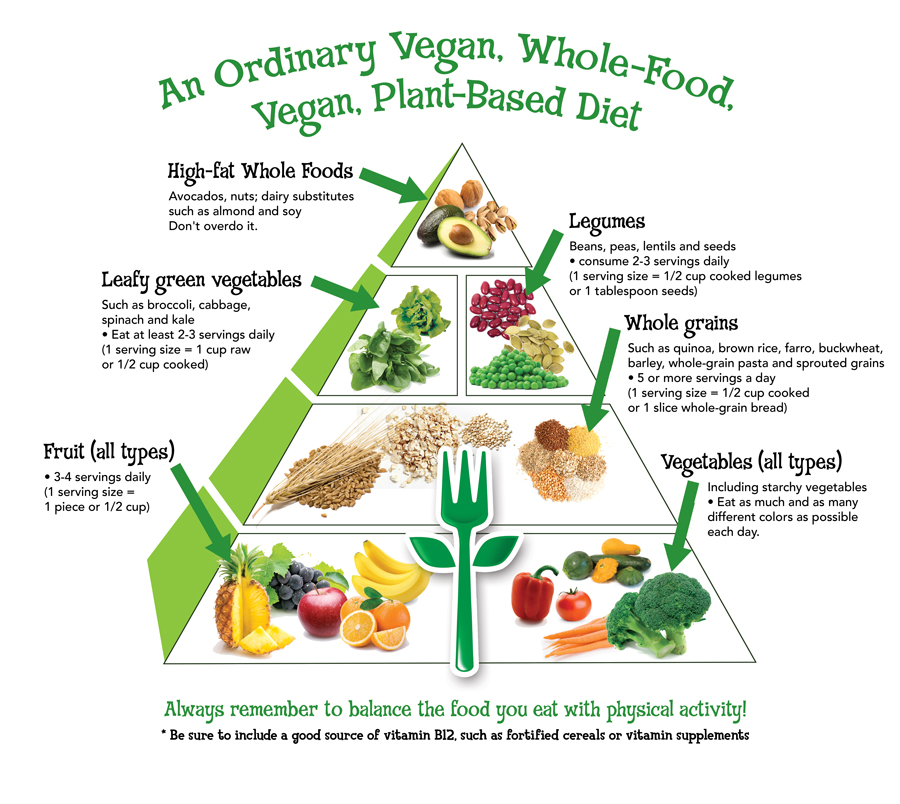All Concerning Healthy Food: Benefits of Enjoying Plant Based Choices
The conversation bordering plant-based diet plans has actually obtained significant focus over the last few years. Lots of individuals are discovering the prospective wellness advantages, nutritional advantages, and environmental effects connected with these nutritional selections. As individuals end up being extra conscious of their food's influence on health and sustainability, inquiries arise regarding the usefulness of embracing such a way of living. What certain changes can one expect, and how might these options improve not only individual health and wellness yet likewise the planet's future?
Understanding Plant-Based Diet Plans
Numerous people connect plant-based diet regimens mainly with vegetarianism or veganism, these diets can encompass a vast range of consuming patterns that focus on whole, minimally processed plant foods. Such diets commonly consist of fruits, vegetables, entire grains, vegetables, nuts, and seeds, while restricting or removing pet products. This adaptability enables people to customize their nutritional choices according to individual preferences and dietary requirements. Some may embrace a mostly plant-based diet regimen while still occasionally consuming meat or milk, often referred to as a flexitarian strategy. The emphasis remains on including even more plant foods, which can lead to a diverse range of tastes and meals. Comprehending these numerous analyses of plant-based consuming is vital for valuing its availability and charm in modern food culture.
Health Advantages of Plant-Based Foods
The health and wellness advantages of plant-based foods are significant, offering a nutrient density advantage that supports general health. Study shows that these foods can improve heart wellness and play an important duty in effective weight management. By including a lot more plant-based options, people may boost their nutritional options and advertise lasting health and wellness.
Nutrient Density Benefit
Nutrient thickness plays a necessary function in the health advantages of plant-based foods, making them an engaging option for those seeking a balanced diet regimen. Plant-based foods, such as fruits, veggies, legumes, nuts, and entire grains, are typically rich in important vitamins, minerals, and antioxidants while being reduced in calories. This high nutrient thickness enables individuals to take in fewer calories while still satisfying their nutritional requirements. Furthermore, these foods are packed with dietary fiber, advertising digestive wellness and aiding in weight monitoring. By including nutrient-dense plant-based choices, consumers can improve their overall health and wellness, support their body immune systems, and lower the risk of chronic diseases. Eventually, the nutrient thickness of plant-based foods highlights their value in a health-conscious way of living.
Heart Wellness Enhancement

Weight Monitoring Assistance
Along with promoting heart health and wellness, a plant-based diet can significantly assist in weight monitoring. This dietary approach stresses entire foods such as fruits, veggies, vegetables, nuts, and entire grains, which are generally lower in calories and higher in fiber compared to animal-based products. The high fiber material helps raise satiation, decreasing general calorie consumption. Moreover, plant-based diet plans are frequently rich in essential nutrients while reduced in undesirable fats, making it easier to preserve a healthy and balanced weight. Gluten Free BBQ Sauce. Study shows that individuals who take on a plant-based lifestyle tend to have reduced body mass indexes (BMIs) and experience even more effective weight loss compared to those who consume meat-heavy diet plans. Welcoming plant-based options is a strategic choice for efficient weight administration.
Nutritional Value of Plant-Based Components
Plant-based active ingredients are rich in necessary nutrients, offering a varied variety of vitamins, minerals, and antioxidants that add to general health and wellness. A contrast of protein resources discloses that while pet items are usually watched as exceptional, numerous plant-based options give ample protein and various other advantageous substances. Comprehending the dietary worth of these components can help people make notified nutritional choices.
Essential Nutrients in Plants
Nutrient-rich ingredients discovered in plants supply a varied range of crucial vitamins and minerals that add substantially to overall health and wellness. These ingredients are rich in vitamins A, C, and K, which support immune feature, vision, and blood clot, specifically. Additionally, plants supply crucial minerals such as calcium, magnesium, and potassium, crucial for heart wellness, muscle function, and bone stamina. The visibility of fiber in plant-based foods help digestion and advertises a healthy and balanced intestine microbiome. Anti-oxidants, located abundantly in vegetables and fruits, help combat oxidative stress and reduce inflammation. Moreover, numerous plant foods are low in calories yet high in nutrients, making them an outstanding option for those seeking to keep a healthy weight while making certain optimal nutrient intake.
Comparing Healthy Protein Resources
Protein sources differ considerably in their nutritional profiles, with plant-based active ingredients using special benefits. Unlike animal proteins, which frequently include saturated fats and cholesterol, plant healthy proteins have a tendency to be lower in these undesirable elements. Legumes, nuts, seeds, and whole grains are abundant in essential amino acids, fiber, vitamins, and minerals. For instance, lentils provide high healthy protein material alongside considerable iron and folate, while quinoa is a full healthy protein, supplying all 9 essential amino acids. In addition, plant-based healthy proteins are frequently come with by anti-oxidants and phytochemicals that support total health. The change to plant-based protein resources not only boosts nutritional consumption however additionally lines up with lasting dietary techniques, decreasing ecological effect and advertising long-lasting wellness benefits.
Ecological Impact of Plant-Based Consuming
As recognition of climate adjustment grows, lots of people are checking out lasting dietary options that can greatly minimize their ecological footprint. Plant-based eating has actually emerged as a considerable factor to reducing greenhouse gas discharges, which are largely associated with animals manufacturing. The cultivation of fruits, vegetables, veggies, and grains generally needs less sources, such as water and land, compared to animal farming. Furthermore, plant-based diet plans can bring about reduced deforestation, as less land is required for grazing animals or expanding pet feed. By changing towards plant-based options, consumers can support biodiversity and promote much healthier communities. On the whole, embracing plant-based eating not just advantages individual wellness yet also represents an important step toward environmental sustainability and conservation efforts.
Overcoming Common Misconceptions
While numerous individuals recognize the benefits of a plant-based diet, several misunderstandings commonly hinder them from totally welcoming this way of living. A typical belief is that plant-based diet plans lack sufficient protein; nonetheless, countless plant resources, such as beans, nuts, and tofu, supply adequate protein. Additionally, some assume that this diet regimen is pricey, when as a matter of fact, staples like beans, rice, and seasonal vegetables can be quite affordable. An additional false impression is that plant-based consuming is overly restrictive, whereas it in fact uses a diverse selection of foods and tastes. Finally, several fret that a plant-based diet regimen might result in deficiencies, yet with correct planning, individuals can get all required nutrients, including minerals and vitamins, while taking pleasure in a wide range of tasty meals.
Tips for Transitioning to a Plant-Based Lifestyle
Making the shift to a plant-based way of living can be an enhancing experience, though it frequently calls for some assistance to browse the initial adjustments. First, people are urged to start progressively, incorporating even more fruits, veggies, legumes, and entire grains right into their meals while lowering meat and dairy intake. Meal preparation is essential; preparing a regular food selection can aid ease the modification and protect against final unhealthy options. Discovering cooking techniques and new check my blog dishes can additionally boost the experience and maintain enjoyment regarding plant-based consuming. In addition, signing up with support groups or communities can offer motivation and share useful ideas. Ultimately, staying educated concerning nourishment warranties well balanced dishes, preventing deficiencies while fostering a healthy, gratifying plant-based lifestyle.
Delicious Plant-Based Meal Concepts
Exploring scrumptious plant-based meal ideas can motivate individuals to accept an extra nutritious diet plan. One preferred option is a passionate quinoa salad, including cherry tomatoes, cucumber, and a tangy lemon-tahini clothing. An additional favorite is a tasty lentil stew, loaded with carrots, celery, and fragrant herbs, best for a calming dinner. For breakfast, over night oats made with almond milk, chia seeds, and covered with fresh berries provide a healthy beginning to the day. In addition, a vibrant vegetable stir-fry with tofu and a range of vivid veggies can be a fast yet pleasing meal. Creamy avocado toast on whole-grain bread, sprinkled with flavors and seeds, uses a straightforward yet flavorful treat. These meals showcase the variety and splendor of plant-based consuming.

Frequently Asked Inquiries
Can a Plant-Based Diet Give Sufficient Healthy Protein?
The inquiry of whether a plant-based diet regimen can give enough healthy that site protein is typical. Numerous resources, consisting of legumes, nuts, seeds, and entire grains, can satisfy healthy protein needs properly, sustaining a balanced and healthy diet regimen for people.
Are Plant-Based Diet Plans Suitable for Kid?
The suitability of plant-based diet regimens for children depends on careful preparation. Sufficient nutrients have to be ensured, consisting of vitamins, minerals, and healthy proteins. With proper support, such diets can support healthy and balanced growth and growth in children.
Exactly how Do I Eat in restaurants on a Plant-Based Diet plan?
Eating in restaurants on a plant-based diet includes looking for restaurants with varied food selections, asking for adjustments, and exploring vegan-friendly choices. Preparation in advance and communicating dietary choices can enhance the dining experience while preserving nutritional choices.
What Are Typical Irritants in Plant-Based Foods?
Usual allergens in plant-based foods include soy, gluten, nuts, and seeds - Plant Based Chicken. People adhering to a plant-based diet ought to understand these irritants and review labels thoroughly to prevent damaging responses and guarantee safe intake
Can Plant-Based Diets Help With Weight Management?
Study indicates that adopting a plant-based diet may assist in fat burning as a result of its generally lower calorie density and higher fiber content. This combination can enhance satiety, helping individuals manage their caloric intake effectively. Many people associate plant-based diets mainly with vegetarianism or veganism, these diets can encompass a large range of consuming patterns that prioritize entire, minimally processed plant foods. Nutrient density plays a crucial duty in the wellness advantages of plant-based foods, making them an engaging option for those looking for a balanced diet. Plant-based diets have actually been shown to noticeably boost heart health and wellness, as they commonly include aspects look here that support cardiovascular feature. In enhancement to promoting heart health and wellness, a plant-based diet can considerably assist in weight monitoring. A typical belief is that plant-based diets do not have enough protein; however, countless plant resources, such as vegetables, nuts, and tofu, provide ample healthy protein.